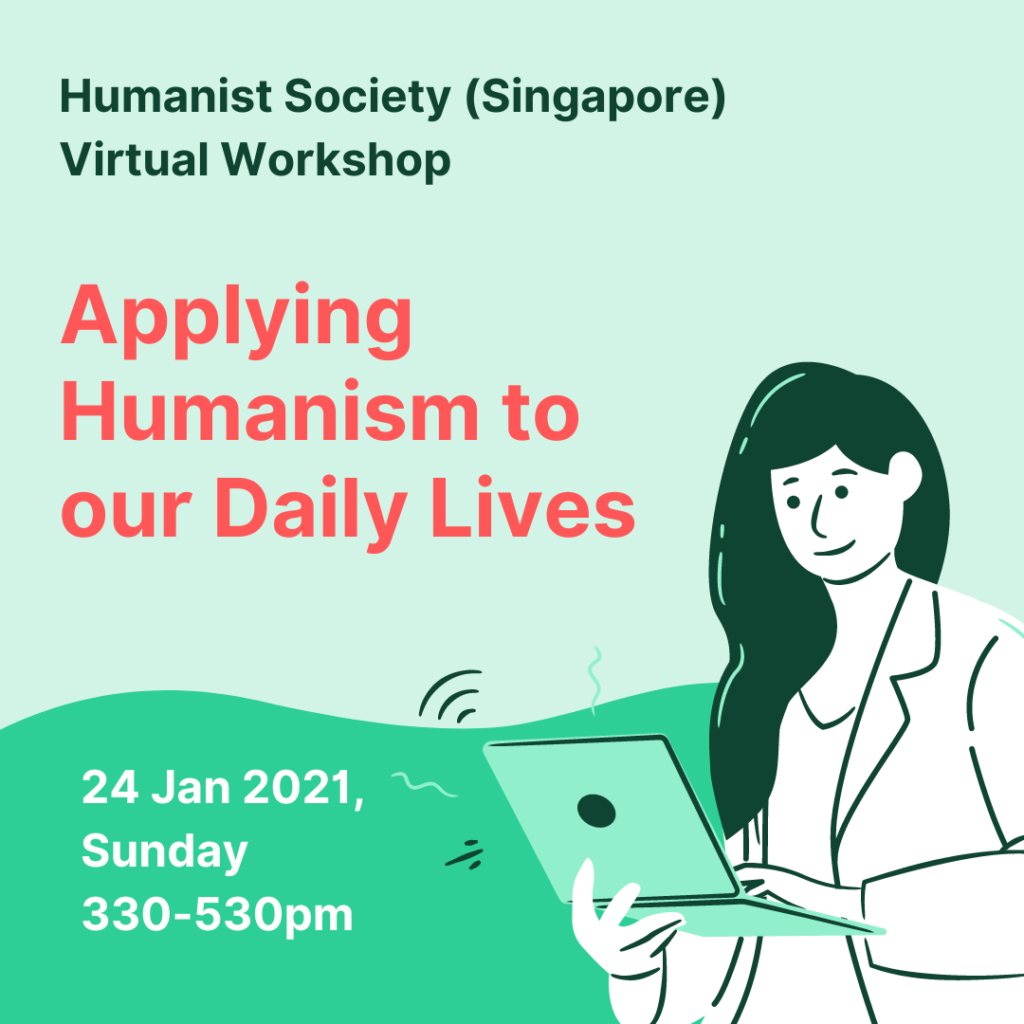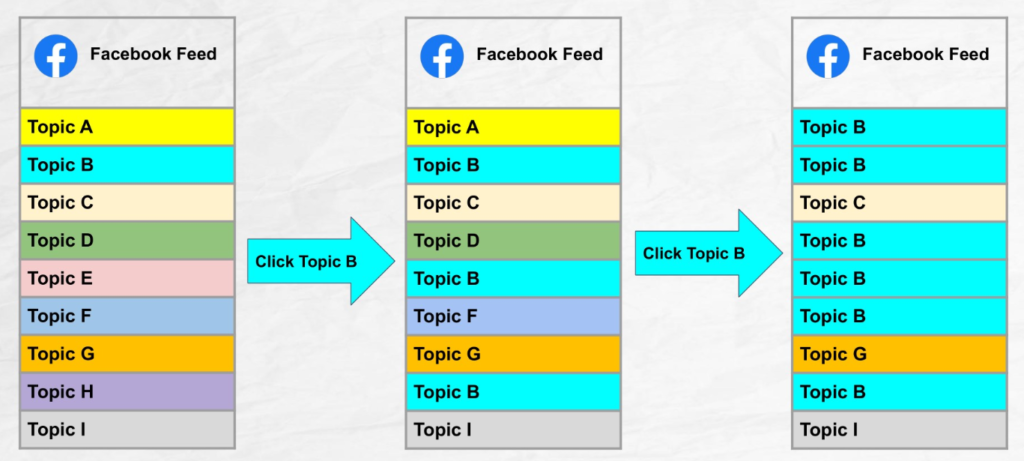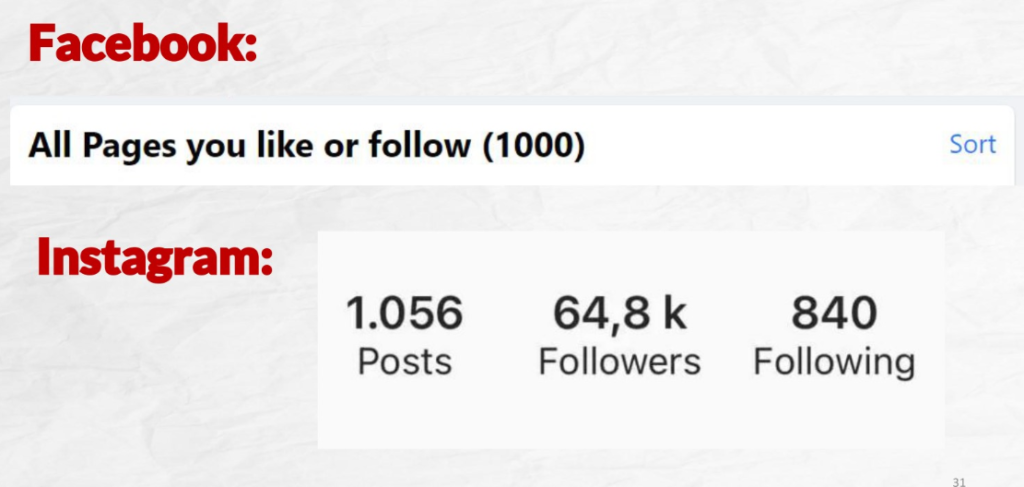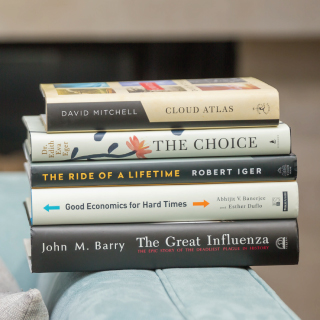
The Humanism Workshop held on 24 Jan 2021 has the following theme: “Applying Humanism to our Daily Lives”.
At this virtual workshop (due Covid), we looked at the problem of ‘toxic algorithms’ that often flood individuals with similar content after just one click, sucking people rapidly into echo chambers like a whirlpool, facilitating the spread of misinformation. We shared methods to combat this problem, such as cleaning up and re-diversifying social media accounts, learning to find good sources, confining addictive apps to PCs-only.
This virtual workshop also:
- Introduced the main principles of secular humanism, recapping a brief history of humanism
- demonstrated actionable steps that can apply to the everyday lives of non-religious individuals, facilitating their search for meaning and happiness.
Combating ‘toxic algorithms’
Why is combating toxic algorithms important?
A 16-year-old boy was detained in Dec 2020 under Singapore’s Internal Security Act after making detailed plans and preparations to conduct terrorist attacks against two mosques in the northern part of Singapore.

This news is shocking and a reminder that terrorism is a real threat to Singapore and we need to stay vigilant. Nonetheless, self-radicalisation among the youth is not a new phenomenon and has been happening for years. Apart from the seductive nature of extremist religious and political ideologies, some other aggravating factors previously raised by experts are:
- Isolation, from their families and the broader community
- Impulsiveness, as youth are unaware of consequences of actions
- Desire for strength and self-worth, and terrorists appeal to strength through violence
- Sleek terrorist marketing, through usage of high-quality videos on social media
In addition, toxic algorithms on social media often flood individuals with similar content after just one click, sucking people rapidly into echo chambers like a whirlpool.

When these echo chambers form, they worsen two aggravating factors of self-radicalisation:
- Isolation, as broader community perspectives are eliminated by algorithms
- Impulsiveness, as repeated notifications provoke and reward faster reaction times
Indeed, a common tell-tale sign of self-radicalised individuals is increasingly withdrawn and secretive behavior, with a lot of time spent online.
Likely, they are already being sucked in the toxic algorithm whirlpool while his family and friends are completely unaware.
Fighting and preventing self-radicalisation is a complex process involving a combination of hard and soft methods. One method that we can adopt in our daily lives are cleaning up information environments.
Escaping the toxic algorithmic whirlpool
Anyone can be self-radicalized, including yourself and your loved ones.
The Humanist Workshop shared some methods to escape the toxic algorithm whirlpool, the following steps can be adopted for yourself or for your family.

1. Clean up and re-diversify your social media
- Schedule a weekly, or monthly cleanup of your social media feed
- Go to the backend of your social media app, look for the list of pages/accounts followed.
- Delete overlapping pages and redundant accounts that have built up over time, Resist the urge to hoard.
- Delete toxic accounts promoting seductive religious and political extremism
- ‘Re-diversify’ your pages by adding a diverse list of good sources.

2. Find good sources
- Don’t always trust the most popular. What is most popular isn’t always the most accurate.
- Find ‘bastions of truth’, sources that depend on telling the truth to make a living, or to save human lives. These give you reality checks.
- Reconnect with a variety of established news sources, fact-checking sites, academic papers, encyclopedias and compendiums.
- One quick template is to follow the reading lists of highly successful people. Check out http://favobooks.com/.

3. Confine addictive apps to PC-only
- Decisions made / words spoken are usually better on second or third thoughts, than impulse.
- Block the urge to click/type immediately. Delete the most addictive app from your mobile, so access will no longer be 24/7
- Confine the addictive app to the heaviest device, the PC, so your usage time is constrained physically while still preserving a connection.

4. Schedule offline stretches
- When offline time is increased, the mind has more space to digest information and gain more self-awareness of toxic ideologies.
- You can schedule long offline stretches, and notify your entire circle of your scheduled offline period. Ask them for help to scold you if you are still online.
- Switch off and lock your device in a cupboard. Reward yourself for it.
- Then take long walks, exercise, engage in healthy offline hobbies. Have face-to-face chats with more people.
If done well, the four steps above will help stop the toxic algorithm whirlpool in its tracks. When done regularly and thoroughly, it can lead to a happier life, and more effectively guard the mind against extremist religious and political ideologies.




